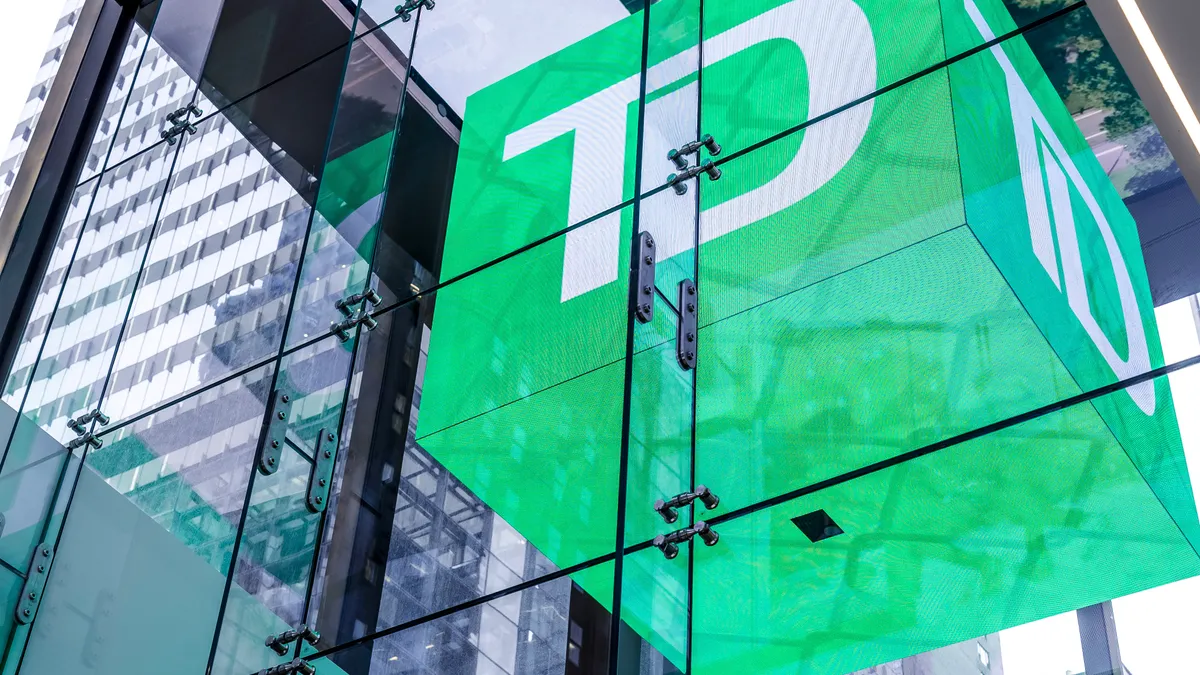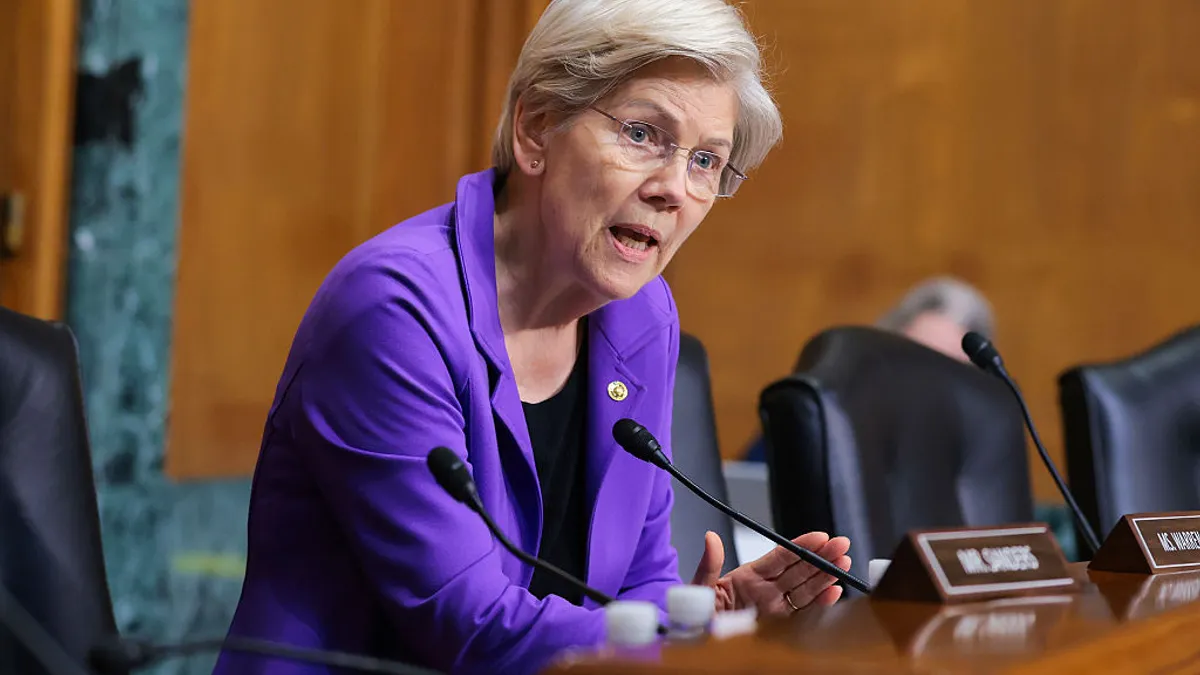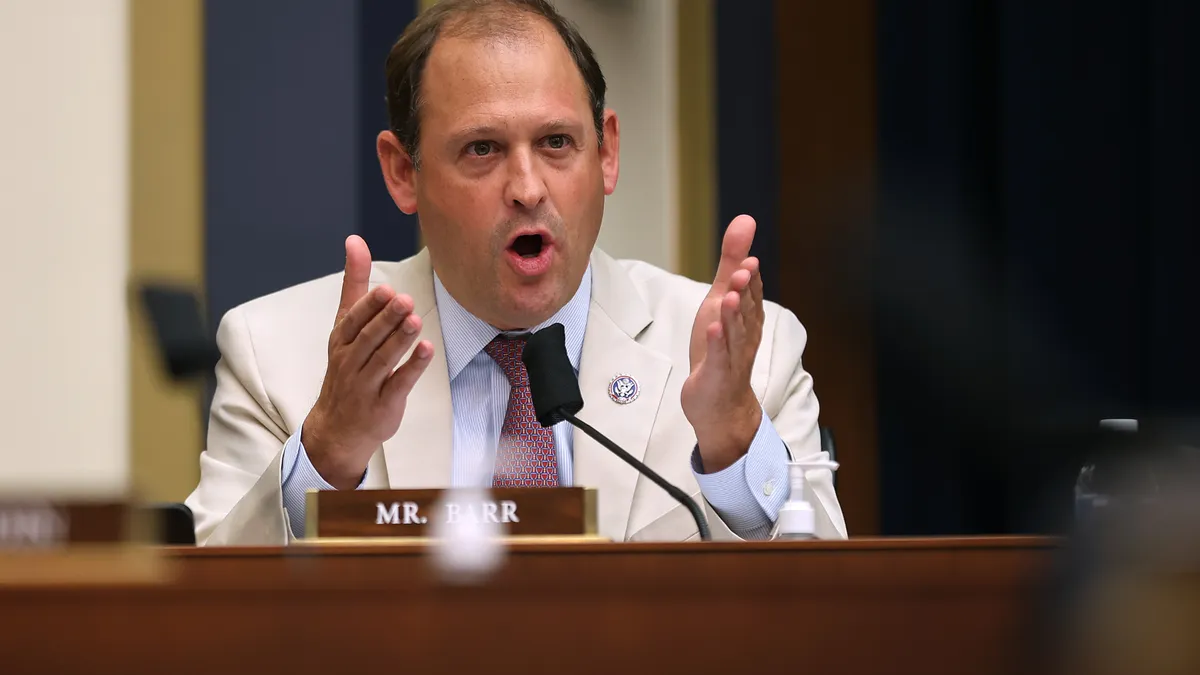A First Horizon shareholder sued TD in federal court Monday, alleging the Canadian lender made a series of misleading statements regarding its anti-money laundering practices and regulator resistance to the $13.4 billion tie-up between the banks.
TD’s handling of suspicious customer transactions sparked reluctance on the part of the Office of the Comptroller of the Currency and the Federal Reserve to sign off on the Toronto bank’s acquisition of First Horizon, The Wall Street Journal reported this month. TD had flagged just 28 customer transactions as suspicious “in recent years,” the lawsuit claimed, citing the Journal article.
TD and First Horizon terminated their deal May 4.
The Arbitrage Fund is suing on behalf of shareholders who bought First Horizon stock between Feb. 28, 2022 — when the deal was announced — and May 3, 2023.
As part of the deal, TD pledged to pay $25 per share for First Horizon, a 37% premium as of February 2022. The lawsuit noted that shares of First Horizon rose to $24.77 by Feb. 28 of this year, but fell 10.6% on March 1, when First Horizon disclosed to the Securities and Exchange Commission that TD said it did not expect to receive regulatory approval on the deal by an amended May 27 termination date. Further, First Horizon told the SEC, “TD cannot provide a new projected closing date at this time.”
First Horizon’s share price continued to drop — to $15.05 by May 3, and then another 33%, to $10.06 on May 4, when the deal was terminated, according to the suit.
Perhaps a complicating factor in the Arbitrage Fund’s case is that a crisis of confidence struck regional banks in general, beginning in mid-March with the failures of Signature and Silicon Valley Bank. If the case were to proceed to a trial, it may be difficult for a jury to discern which fluctuations in First Horizon’s value stemmed from TD-related uncertainty and which came amid the SVB and Signature fallout.
First Horizon’s stock price fell by as much as 33% on March 13 — the day after Signature failed. Trading was halted, but even after it resumed, First Horizon shares had slumped 20% on the day.
TD, for its part Tuesday, told Seeking Alpha its “public disclosures are accurate.”
"The lawsuit is without merit and TD will vigorously defend it,” the bank said in a statement.
Filed in the U.S. District Court for the Southern District of New Jersey, the suit points to several statements TD and its executives made while the deal was in process.
“Our expectation is that this will get approved and get closed around the 9-month mark,” the lawsuit quoted TD CEO Bharat Masrani as saying during the Feb. 28, 2022, call announcing the merger.
TD appeared confident enough in the deal at first that it offered to pay an additional $0.65 per share if the transaction wasn’t closed by Nov. 27, 2022.
The lawsuit also highlighted Masrani’s alleged response in August to an analyst on a conference call who asked if TD knew of any “regulatory or other issues that may delay the deal.”
Masrani replied he had “no reason to believe that,” the lawsuit asserted.
“It is following its normal process within the US regulatory requirements,” Masrani said, according to the suit.
Three weeks later, on an earnings call, Masrani said the deal “continues to progress in the normal course,” the lawsuit claimed. “There is nothing out there to suggest that is different this time around.”
Masrani maintained much the same tone after TD began to publicly estimate a later closure timeline. The bank in December said it expected the transaction to be complete in the first half of fiscal 2023.
At that point, on a call where an analyst asked if the delay was because U.S. regulators were “taking a closer look at anything,” Masrani, according to the lawsuit, said, “No I’m not aware of anything of the sort you’re mentioning.”
Masrani, the lawsuit claimed, had earlier said, “We at TD pride ourselves in having excellent regulatory relationships.”
Masrani and two other TD executives — U.S. CEO Leo Salom and CFO Kelvin Tran — are named as defendants in the Arbitrage Fund’s suit.
The plaintiffs took issue, too, with various risk management and AML-related statements from TD, citing the bank’s code of ethics, which stated, “TD is committed to taking all reasonable and appropriate steps to detect and deter persons engaged in money laundering from utilizing TD products or services to do so.”
The lawsuit also highlighted TD’s assertion that it shared an “aligned culture and risk management framework” with First Horizon.
“Like TD, First Horizon has a strong team with a growth mindset and a disciplined risk culture,” the lawsuit quoted from a slide it said was shown to First Horizon investors when the tie-up was announced.
The lawsuit also spotlighted a potential expression of surprise at the deal’s collapse, citing a Royal Bank of Canada analyst, who wrote, “We may never know the precise reasons for the regulatory resistance, but it must [be] more serious than we had assumed.”
“TD’s credibility as an acquirer has been dealt a blow,” the analyst wrote, according to the suit.






















